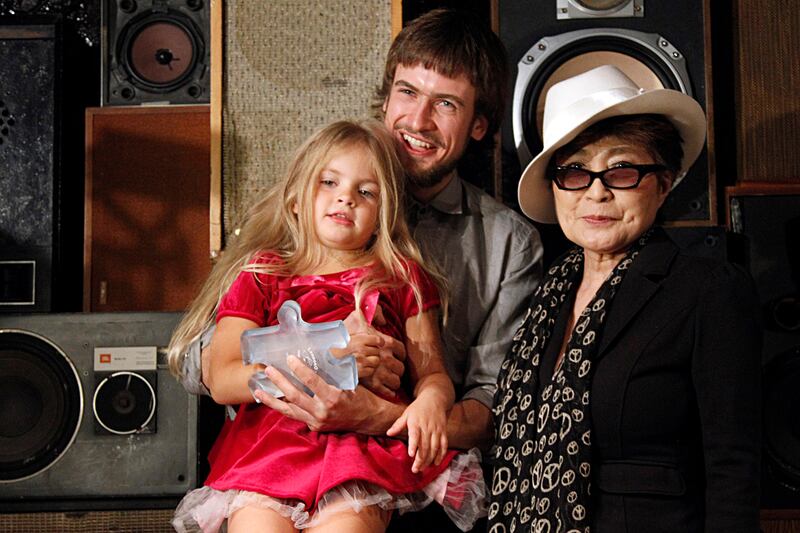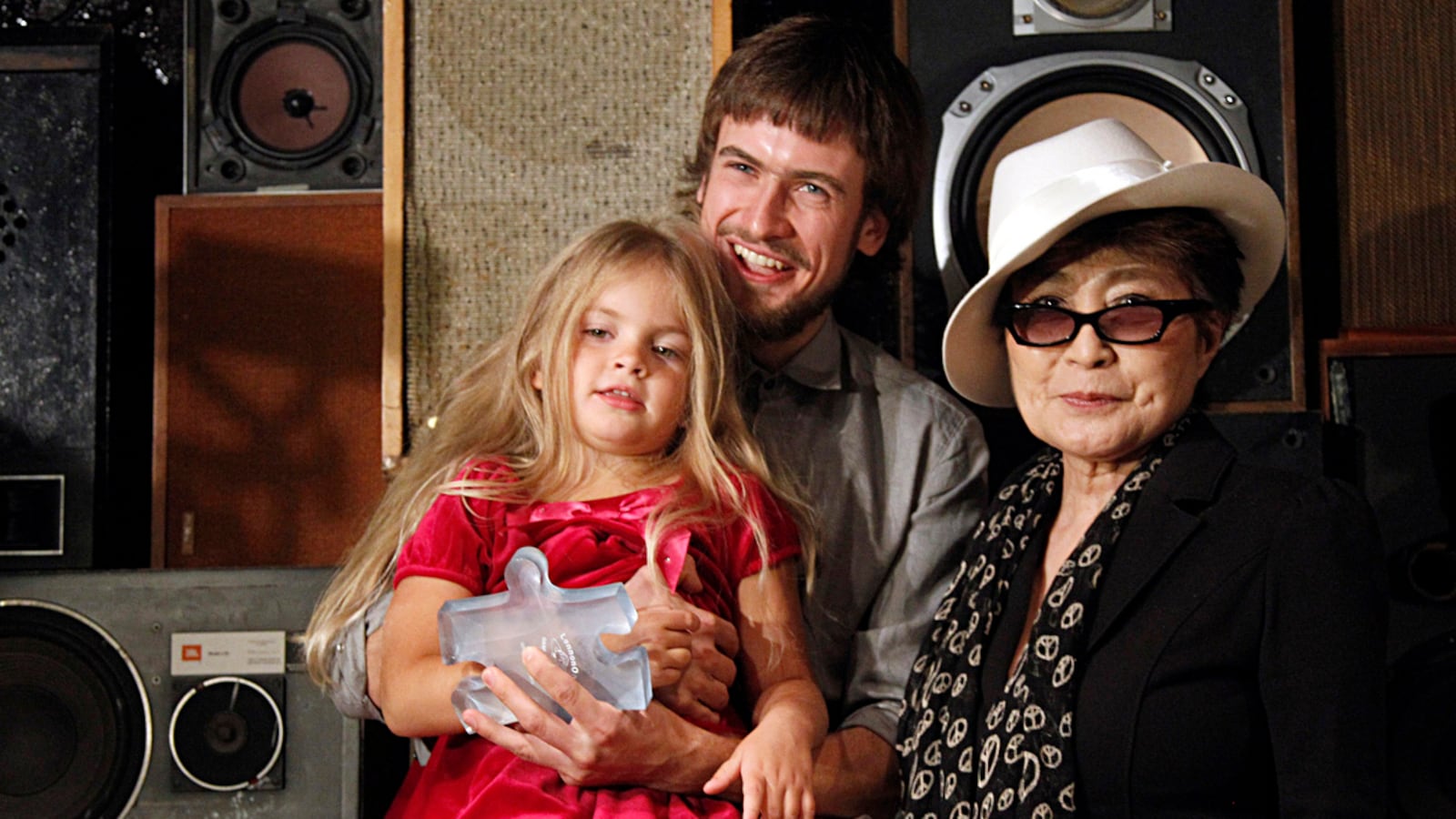Barely a month after three members of the Russian punk rock band Pussy Riot graced the front pages of newspapers around the world after they were sentenced to two years each in prison for singing an anti-Putin song in a Moscow cathedral, the band’s defense attorneys and the husband of one of the members began a U.S media blitz to remind the public exactly what they were so outraged about in the first place.
The young women of Pussy Riot—Nadezhda Tolokonnikova, Maria Alyokhina, and Yekaterina Samutsevich—were found guilty of “hooliganism driven by religious hatred” on Aug. 17 and quickly became the cause célèbre of American celebrities from Madonna to Chloe Sevigny.
Now, just before the case is set to be—in the words of one of the defense attorneys, “constitutionally re-examined” in a Moscow courtroom on Oct. 1—the North American version of the Pussy Riot tour has picked up very prominent fans like Yoko Ono and Burmese opposition leader Aung San Suu Kyi.
Ono presented Pyotr Verzilov, Tolokonnikova’s 26-year-old husband, with the LennonOno Grant for Peace this week. He accepted it on behalf of the band members while they remain in custody in Russia.
At a panel on Pussy Riot’s trial hosted by New York University’s School of Law on Friday afternoon, Verzilov acknowledged the irony of advocating for the band without the young women present to advocate for themselves. Verzilov told the crowd of several hundred professors, law students, Occupy activists, and reporters that he visited his wife in jail on Monday to tell her about the prize Ono had given the band.
“She said, ‘Yeah, I’m sitting in Moscow pre-trial detention center No. 6 and you get to go meet Yoko Ono. Yeah, that’s cool,’” Verzilov said.
The couple, who have been involved in Moscow’s anti-government contemporary art scene for about five years, met when Tolokonnikova was 17. Verzilov told The Daily Beast he was “shocked by her deep knowledge of philosophy” at such a young age.

Verzilov, accompanied by the couple’s 4-year-old daughter, Gera, also met with Suu Kyi in New York, who called for Pussy Riot’s immediate release. “The only reason that people should not sing is if what they are saying is deliberately insulting or they sing terribly. That would be the best reason for not singing at all,” she said at an event hosted by Amnesty International.
Pussy Riot’s lawyers have said that they don’t expect the sentencing to be overruled in court.
The band’s defense attorneys Nikolai Polozov, Mark Feygin, Violetta Volkova and Alisa Obraztsova, as well as Verzilov, and Amnesty International top brass have spent the week rallying for the imprisoned young women and reminding an international audience of the trial’s significance.
“This is not just a question of law but a question of political struggle,” one of the defense attorneys told the crowd at NYU.
Verzilov told the audience that the attention the case has garnered around the world ensured that, “their cause and the months they are spending in prison—all that is not worthless. Their fight is living on and everything they stand up for will prevail.”
He was also quick to point out the similarities between the American Occupy movement and recent waves of Russian protest. Massive rallies that broke out in Russia’s cities before Putin’s inauguration in December 2011 were styled and named after Occupy, he told The Daily Beast, adding that “Occupy in the United States does not present one unified front, whereas in Moscow people have one issue that unites them,” referring to anti-Putin sentiment.
The leaders of Pussy Riot’s cause are also faced with a task similar to that of Occupy’s organizers: how to keep momentum up.
Suzanne Nossel, the executive director of Amnesty International, told The Daily Beast the group is “in it for the long haul,” with the Pussy Riot case.
The organization designated the Pussy Riot members “prisoners of conscience” shortly after they were arrested in March. “There’s a deep sense of solidarity and commitment to this case among our members,” Nossel said.
She says the Pussy Riot case deserves continued attention as both an international violation of basic rights of free speech and expression, and a key example of Russia’s human-rights offenses. “The case is also emblematic of a wider and deeper human-rights crisis in Russia with rapidly shrinking space for civil society,” Nossel said. “This case has been helpful in getting people to pay attention to a real crisis in the works.”





